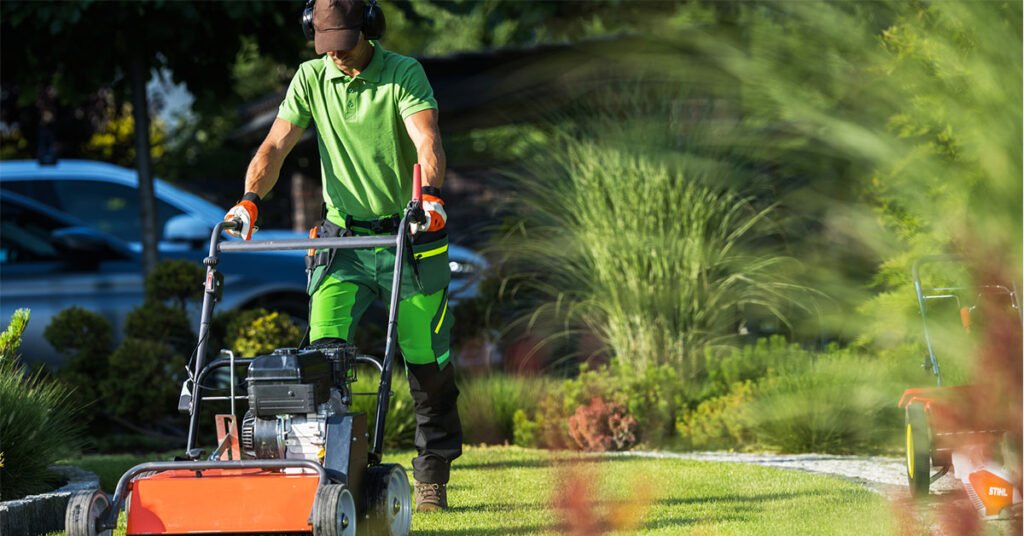Are you passionate about transforming outdoor spaces into beautiful, functional landscapes? If so, embarking on a career in the landscaping industry could be the perfect fit for you. However, before you can start offering your services professionally, it’s essential to obtain the necessary licensing. In this comprehensive guide, we’ll walk you through how to get landscaping license and kick-starting your career in this rewarding field. Let’s get started.
The Importance of a Landscaping License
It’s important to understand the importance of a landscaping license before pursuing one. In the landscaping industry, a license symbolizes commitment, professionalism, dedication, and excellence. To become a reputable landscaper, you need a landscaping license for several reasons:
Demonstrates Expertise and Credibility
A landscaping license provides tangible evidence of your expertise and competence in the field. It assures potential clients that you possess the necessary knowledge, skills, and experience to deliver high-quality landscaping services. The more you display your license on your website and in your marketing materials, the more likely potential clients are to trust you over competitors without proper licensing.
Ensures Compliance with Regulations and Standards
Operating without a landscaping license can expose you to legal and regulatory risks. Many jurisdictions have specific licensing requirements and regulations governing landscaping practices to ensure consumer protection, environmental sustainability, and public safety. Getting a license shows you’re committed to following these rules and maintaining industry standards. This not only helps you avoid potential fines or legal issues but also fosters trust and respect within the community.
Opens Up Business Opportunities
Landscape licenses open doors to a lot of business opportunities that aren’t available to unlicensed people. A lot of government agencies, commercial clients, and larger businesses require contractors to be licensed. Obtaining your license allows you to expand your client base, increase your revenue potential, and grow your landscaping business.
Enhances Professional Reputation
In an industry as competitive as landscaping, reputation is everything. A landscaping license shows you’re serious about delivering exceptional service and quality results. Clients are more likely to trust and recommend licensed landscapers, leading to positive word-of-mouth referrals and repeat business. Licenses are badges of honor that show your commitment to excellence and professionalism, further boosting your reputation.
Promotes Consumer Confidence
In today’s marketplace, consumers are increasingly discerning about who they hire for landscaping services. They want assurance that they are working with reputable, trustworthy professionals who prioritize their satisfaction and safety. With a landscaping license, you can give potential clients peace of mind that you’ve met rigorous licensing requirements. Ultimately, this leads to greater client satisfaction and loyalty, as it gives them confidence in your abilities.
How to Get Landscaping License?
Following is a step-by-step guide to obtaining a landscaping license.
Step 1: Research Licensing Requirements in Your Area
The requirements for obtaining a landscaping license vary depending on your location. Start by researching the specific licensing regulations and procedures in your city, county, or state. This may involve visiting government websites, contacting relevant licensing agencies, or consulting with experienced landscapers in your area.
Step 2: Fulfill Educational and Experience Requirements
In many jurisdictions, obtaining a landscaping license requires a combination of formal education and hands-on experience. Consider enrolling in landscaping courses or programs offered by reputable institutions to enhance your knowledge and skills. Additionally, gaining practical experience through internships or apprenticeships under seasoned landscapers can be invaluable in preparing you for licensure.
Step 3: Prepare for the Licensing Exam
Once you’ve met the educational and experience requirements, the next step is to prepare for the licensing exam. This exam typically assesses your knowledge of landscaping principles, techniques, safety practices, and relevant regulations. Consider investing in study materials, attending exam preparation classes, or taking practice tests to increase your chances of passing the exam with flying colors.
Step 4: Submit Your License Application
With your exam preparation underway, it’s time to complete and submit your landscaping license application. Be sure to gather all required documentation, such as proof of education, work experience, and any additional certifications or permits. Pay close attention to the application deadlines and submission guidelines to avoid any delays in the licensing process.
Step 5: Ace the Licensing Exam
Armed with your knowledge and preparation, it’s time to tackle the licensing exam. Approach the exam with confidence, carefully reading each question and drawing on your understanding of landscaping principles and best practices. Remember to manage your time effectively and review your answers before submitting the exam.
Step 6: Obtain Your Landscaping License
Congratulations! Upon passing the licensing exam and meeting all other requirements, you’ll be awarded your landscaping license. Display it proudly in your place of business and include it in your marketing materials to showcase your professionalism and expertise to potential clients.
Read More: How Much Do Landscapers Make A Day?
Conclusion
The landscaping license is a significant step in building a successful landscaping career. Following the steps outlined in this guide and staying committed to continuous learning and improvement will prepare you for success in this field. What are you waiting for? Make the first step toward becoming a licensed landscaper!



